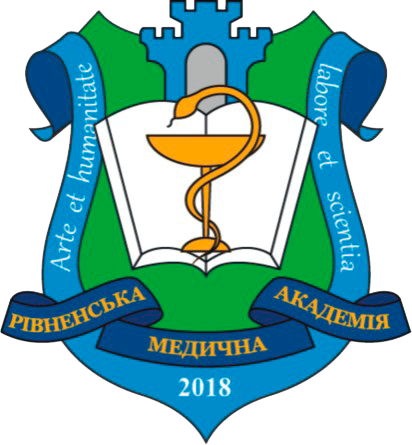ФОРМУВАННЯ КОМУНІКАТИВНИХ ЗДІБНОСТЕЙ У СТУДЕНТІВ МЕДИЧНИХ КОЛЕДЖІВ НА ЗАСАДАХ ОСОБИСТІСНО ОРІЄНТОВАНОГО ПІДХОДУ
DOI:
https://doi.org/10.32782/health-2025.1.27Ключові слова:
комунікативні здібності, цифрові компетенції, медичний коледж, особистісно орієнтований підхід, інтеграція, навчальний процес, професійна компетентністьАнотація
Вимоги до компетентності сучасного фахівця детермінуються цифровізацією суспільних процесів, стрімким розвитком інформаційно-комунікаційних технологій та активною динамікою ринку праці. Професійна компетентність майбутніх випускників медичних коледжів детермінується не лише «жорсткими» професійними навичками та уміннями (hard skills), а й «м’якими» навичками (soft skills), у межах яких особлива увага приділяється комунікаційним здібностям. Метою статті є аналіз процесів формування комунікаційних компетенцій у студентів медичних коледжів на основі принципів особистісно орієнтованого підходу. Досліджено основні комунікаційні навички, необхідні для успішної перспективної професійної реалізації здобувачів освіти в медичних коледжах за сучасних умов ринку праці.Систематизовано теоретико-методологічні засади формування комунікативних здібностей на засадах особистісно орієнтованого підходу. Обґрунтовано необхідність удосконалення цифрових навичок студентів як невід’ємної частини сучасного комунікаційного процесу. Проаналізовано динаміку цифрових навичок за типом серед дорослого населення за період 2019–2023 рр. та рівень використання інформаційних систем у національному освітньому просторі за цей період. Виокремлено основні педагогічні технології формування цифрових комунікативних здібностей для професійної компетентності сучасного фахівця, зокрема: соціальні медіа, аналіз даних тощо. Доведено, що залучення потенціалу інформаційно-комунікаційних технологій у межах особистісно орієнтованого підходу сприяє формуванню навичок критичного мислення, мобільності, соціальної та кроскультурної компетентності.
Посилання
Melnychuk Y. Y. Принципи побудови інформаційних систем освітнього призначення. Computer-integrated technologies: education, science, production. 2023. №50. С. 77–83. https://doi.org/10.36910/6775-2524-0560-2023-50-11
Вьюненко О., Гонзалес-Агаджанов К., Агаджанова С., Руденко Ю. Інформаційні комунікаційні технології електронного навчання як база інновацій у вищій освіті. Освіта. Інноватика. Практика. 2023. № 11(4). С. 13–19. https://doi.org/10.31110/2616-650X-vol11i4-002
Генсерук Г. Р., Бойко М. М. Цифрові технології як засіб підвищення якості освітнього процесу закладу вищої освіти. Інноваційні технології цифрової освіти у вищій та середній школі України та країн Євросоюзу. 2020. № 5. С. 110–111. http://dspace.tnpu.edu.ua/bitstream/123456789/15380/1/37_Henserk_Boiko.pdf
Bakhmat N., Sydoruk L., Poberezhets H. Features of Using the Opportunities of the Digital Environment of the Higher Educational Institution for the Development of Future Economists’ Professional Competence. Economic Affairs (New Delhi). 2023. № 68(1). Р. 43–50.
Yuldashev O. K., Khomiachenko S. I., Yuldashev S. O. Organizational and legal model of competency-based education as a means of the transition to innovative economy. Danube. 2022. № 13(2). Р. 107–118. doi:10.2478/danb-2022-0007
Popov O.O., Kyrylenko Y.O., Kameneva I.P. The use of specialized software for liquid radioactive material spills simulation to teach students and postgraduate students. CEUR Workshop Proceedings. 2022. № 30(85). Р. 306–322.
Лубко Д. В. Шаров, С. В. Напрямки використання інтелектуальних систем в освітньому процесі. Українські студії в європейському контексті: зб. наук. пр. 2021. № 3. С. 305–310. http://eprints.mdpu.org.ua/id/eprint/11680
Koval O., Fomina I., Golub I. Resilience in the Changed Conditions of Educational and Professional Training of Future Specialists of a Socionomic Profile. Insight. 2024. № 11. Р. 204–221.
Чичкан О., Костовський М. Використання інформаційних технологій під час дистанційного навчання здобу- вачів вищої освіти. Здоров’я, фізичне виховання і спорт: перспективи та кращі практики. 2021. № 56. https://fzfvs.kubg.edu.ua/images/stories/Departaments/ilid/kfr/plani/Abstacts_FHPES_2021.pdf#page=56
Szymkowiak A., Melović B., Dabić M., Jeganathan K., Kundi G. S. Information technology and Gen Z: The role of teachers, the internet, and technology in the education of young people. Technology in Society. 2021. № 65. https://doi.org/10.1016/j.techsoc.2021.101565
Дослідження цифрової грамотності в Україні. Дія. Освіта. 2023. https://osvita.diia.gov.ua/uploads/1/8864-presentation_ua_2023.pdf
Міністерство освіти і науки України. 2024. https://mon.gov.ua/
Hawkridge D. New information technology in education. Routledge, 2022. https://doi.org/10.4324/9781003312826
Haleem A., Javaid M., Qadri M. A., Suman R. Understanding the role of digital technologies in education: A review. Sustainable Operations and Computers. 2022. №3. Р. 275–285. https://doi.org/10.1016/j.susoc.2022.05.004
Castro M. D. B., Tumibay G. M. A literature review: efficacy of online learning courses for higher education institution using meta-analysis. Education and Information Technologies. 2021. № 26(2). Р. 1367–1385. https://doi.org/10.1007/s10639-019-10027-z
Burbules N. C., Fan G., Repp P. Five trends of education and technology in a sustainable future. Geography and sustainability. 2020. №1(2). Р. 93–97. https://doi.org/10.1016/j.geosus.2020.05.001
Alam A. Should robots replace teachers? Mobilisation of AI and learning analytics in education. 2021 International Conference on Advances in Computing, Communication, and Control (ICAC3). 2021. Р. 1–12. doi: 10.1109/ICAC353642.2021.9697300
Zhao Y., Llorente A. M. P., Gómez M. C. S. Digital competence in higher education research: A systematic literature review. Computers & Education. 2021. № 168. https://doi.org/10.1016/j.compedu.2021.104212
Adıgüzel T., Kaya M. H., Cansu F. K. Revolutionizing education with AI: Exploring the transformative potential of ChatGPT. Contemporary Educational Technology. 2023. http://hdl.handle.net/10679/9079
Reis D.A., Fleury A.L., Carvalho M.M. Consolidating core entrepreneurial competences: toward a meta-competence framework. International Journal of Entrepreneurial Behavior & Research. 2021. № 27(1). https://doi.org/10.1108/IJEBR-02-2020-0079
Sinambela E. A., Mardikaningsih R., Arifin S., Ayu H. D. Development of Self Competence and Supervision to Achieve Professionalism. Journal of Islamic Economics Perspectives. 2020. № 1(2). https://doi.org/10.35719/jiep.v1i2.13
Hernandez-de-Menendez M., Morales-Menendez R., Escobar C.A. Competencies for Industry 4.0. Int J Interact Des Manuf. 2020. №14. Р. 1511–1524. https://doi.org/10.1007/s12008-020-00716-2





